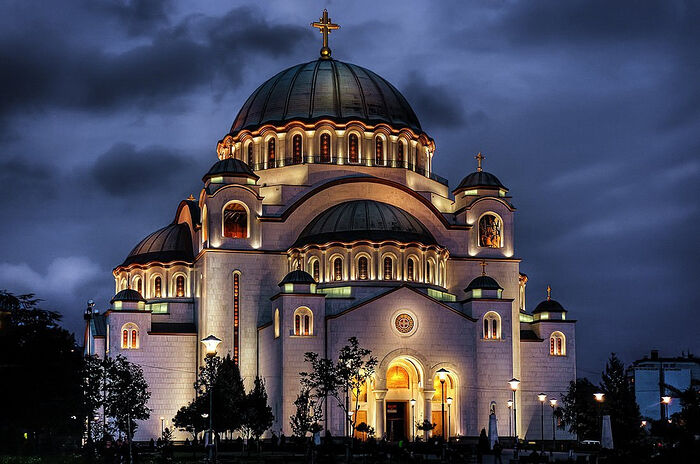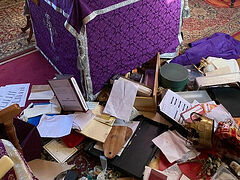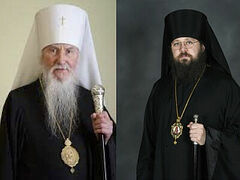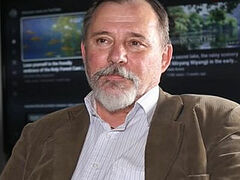Belgrade, March 15, 2022
The Serbian Orthodox Church considers its inclusion in a new European Parliament report on foreign interference in democratic processes in the EU to be completely unjustified and disappointed.
“The completely unjustified mentioning of the Serbian Orthodox Church in the Resolution of the European Parliament on foreign interference in all democratic processes in the European Union, including disinformation, based solely on deep historical prejudices and tendentiously created stereotypes is not surprising, but is, indeed, deeply disappointing for us,” reads the Church’s new statement on the matter.
The European Parliament report calls out the Serbian Church twice, in connection with the promotion of traditional values and the Russian state:
is concerned about the attempts by the Orthodox Church in countries such as Serbia, Montenegro, and Bosnia and Herzegovina, especially in its entity Republika Srpska, to promote Russia as a protector of traditional family valuesand fortify relations between state and church (§121);
Observes that foreign interference can also be pursued through influence in and the instrumentalisation of religious institutes, such as Russian influence in Orthodox churches, in particular in Serbia, Montenegro, Bosnia and Herzegovina, especially in its Republika Srpska entity, Georgia and to some extent in Ukraine, including by sowing division among local populations, developing a biased writing of history and promoting an anti-EU agenda, Turkish Government influence through mosques in France and Germany, and Saudi Arabian influence through Salafi mosques across Europe promoting radical Islam (§131);
The report’s characterization of the Serbian Church “is completely contrary to the facts and the commitment of the Church in everyday life, and we therefore firmly reject such a position,” the Church responds.
Regarding the traditional values that the Serbian and Russian Churches hold in common, the Serbian Church statement notes that all Orthodox Churches hold the same values, as well as many other Christian groups and other religious groups.
Read the Serbian Church’s full statement:
The completely unjustified mentioning of the Serbian Orthodox Church in the Resolution of the European Parliament on foreign interference in all democratic processes in the European Union, including disinformation, based solely on deep historical prejudices and tendentiously created stereotypes is not surprising, but is, indeed, deeply disappointing for us.
Putting the Serbian Orthodox Church into the role of the cause of “tensions between ethnic groups in the Western Balkans in order to inflame conflicts and divide communities” is completely contrary to the facts and the commitment of the Church in everyday life, and we therefore firmly reject such a position.
The Church incessantly prays for peace, builds peace and encourages her faithful people to heal the wounds of the past, to improve trust and build bridges of cooperation with the neighbors, regardless of how they pray or to which nation they belong to.
The qualification of the Serbian Orthodox Church in the relevant Resolution, contrary to these irrefutable and widely-known facts, gives an incorrect picture and results that are not in line with the goals for which the European Union was founded and exists – judging at least by its proclaimed principles and official documents – and those goals are justice and freedom for all.
We are also obliged to clarify the truly surprising putting in a negative context of the issue of protecting the traditional family values, which the Serbian Church stands for in the same way as the Russian Orthodox Church does, as well as all other local Orthodox Churches without exception, but not in the least different, the Catholic Church, as well as some of the Reformation Churches. This is evidenced, for example, by the joint statement of Pope Francis and Patriarch Kirill issued on Cuba, as well as statements made by Pope Francis and his predecessors together with Patriarch Bartholomew, through which both Catholics and Orthodox jointly reaffirm the family as a natural center of the life of man and of the society. We find similar principles about marriage in Islam, as, of course, in Judaism.
For the Serbian Orthodox Church, these are elementary and at the same time universal anthropological values on which not a nation, state or union but human civilization survives or falls, so they cannot change depending on the opinion of any political forum or social group. The church, both in her being and in her social activity, is neither conservative nor liberal per se. She does not preserve neither the old system of values because of its oldness, nor does she rush to accept a new approach to man and the environment in which he lives, only because it is a new one. On the contrary, with her evangelical and Christocentric system of values, the Church, regardless of time and space, is always contemporary. That means that at all times she belongs to eternity and to the time she lives in, always testifying to the inviolability of dignity of man as the icon of God, and strives to participate in all that is good, true, honorable and imperishable, having as a basis the permanence of the words of her Head and Founder, Christ the Savior.
It is equally difficult to understand why the mentioned Resolution mentions the relationship between the state and the Church as controversial. Anyone who is to the least interested in this issue knows that the Serbian Orthodox Church advocates for – which is well regulated by specific laws in the countries where she conducts her mission – the principle of cooperative separation of Church and state. This activity of the Serbian Orthodox Church is based on democratic principles and procedures, for the good of all – the state, the Church and all citizens – regardless of whether they are believers or not. Should we remind that exactly the same order is also present in the countries of the European Union in whose Parliament the Resolution was passed?
Finally, neither there is nor there can be any interference, either from the East or from the West, in the fundamental issues of peace and coexistence, which are at the center of the interest, work and engagement of the Serbian Orthodox Church. The Church will continue to pray to the only Peacemaker, Christ Crucified and Risen, for peace among the people who live in this area and for the peace of the whole world.
Follow OrthoChristian on Facebook, Twitter, Vkontakte, Telegram, WhatsApp, MeWe, and Gab!





